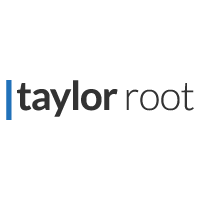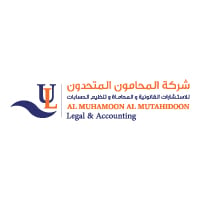

Group general counsel | Aramex










Ayed Tadros
Group general counsel | Aramex
How do you approach managing legal aspects during periods of instability or crises, and how does your legal strategy align with the broader business strategy to ensure the organisation’s resilience?
Managing legal aspects during periods of instability or crises requires a strategic and proactive approach.
During times of instability, whether caused by geopolitical events, economic downturns, or unforeseen disruptions, it is critical to have a robust crisis management framework in place. We prioritise risk assessment and scenario planning to identify potential legal challenges early on. This allows us to develop contingency plans that mitigate risks while ensuring compliance with applicable laws and regulations.
Our legal team works closely with other departments, such as operations, finance, and communications, to provide real-time legal support. By integrating legal considerations into the overall crisis response plan, we can make informed decisions that protect the company’s interests and minimise potential liabilities.
In addition, one of my primary focus areas to enhance the organization’s resilience during instability and crisis times is to ensure that our legal strategy is closely aligned with the broader business strategy. Accordingly, our legal strategy is designed to support Aramex’s broader business objectives, even in times of crisis. We focus on maintaining business continuity by securing critical contracts, protecting intellectual property, and ensuring compliance with regulatory requirements across all regions. Being the group general counsel of a public listed company like Aramex, we also prioritise clear and transparent communication with our stakeholders including the financial market, which is essential for maintaining trust and confidence during uncertain times.
By aligning our legal strategy with the business strategy, we ensure that Aramex remains agile, resilient, and well-positioned to navigate any challenges that arise, ultimately safeguarding the company’s long-term success.
What do you see as the major legal challenges for businesses in the region over the next five years, and how are you preparing to address them?
As the group general counsel of Aramex, I have a keen perspective on the legal challenges that businesses in the GCC, Middle East and surrounding regions will face in the coming years. The next five years are expected to bring a dynamic and complex legal landscape, driven by rapid technological advancements, evolving regulatory frameworks, increased competition in large economies like Saudi Arabia, and geopolitical shifts. Perhaps some of the major legal challenges I foresee and how we are preparing to address them at Aramex can be summarised as follows:
Regulatory complexity and compliance: the regulatory environment in the region is becoming increasingly complex, with governments introducing new laws and regulations to address issues such as anti-trust and competition, tax, data protection, consumer rights, and environmental sustainability. This regulatory evolution, while necessary, presents significant compliance challenges for businesses operating across multiple jurisdictions. At Aramex, we are strengthening our compliance frameworks by considering investing in advanced compliance management systems this year. We also have a global network of external advisors who keep us up-to-date on all the regulatory changes and updates that impacts our business and operations. Through that, we aim to monitor regulatory changes in real-time, ensuring that we can quickly adapt our practices to meet new requirements. Additionally, we are focusing on training and awareness programs to ensure that our teams are well-versed in the latest regulations and understand the implications for our operations. One additional advantage we have at Aramex is our extended geographical reach across the globe. By having operations in all continents, we are able to share knowledge and apply solutions and best practices across different jurisdictions.
Data privacy and cybersecurity: as businesses in the region increasingly digitize their operations, data privacy, data residency, and cybersecurity have become critical concerns. The introduction of new data protection regulations, such as the UAE’s Federal Data Protection Law, mirrors global trends like the GDPR and imposes stringent requirements on how businesses handle personal data. Simultaneously, the threat of cyberattacks is on the rise, with businesses needing to protect sensitive information from breaches and unauthorized access. To address these challenges, Aramex has implemented robust data protection policies and cybersecurity measures. We are continually enhancing our data encryption and access control protocols to safeguard our information assets. Additionally, we are engaging in regular cybersecurity audits and working closely with our IT department to ensure that our systems are resilient against potential threats. We are also staying ahead of evolving data protection laws by closely monitoring legislative developments and ensuring our compliance strategies are up-to-date.
Geopolitical instability and trade restrictions: the Middle East remains a region of geopolitical volatility, with ongoing conflicts, shifting alliances, and economic sanctions posing risks to businesses. Trade restrictions and sanctions, in particular, can disrupt supply chains and limit market access, creating legal challenges for companies like Aramex engaged in cross-border trade. In the presence of such risks and in anticipation of additional ones to arise, Aramex is developing contingency plans and diversifying our supply chain to reduce our reliance on any single region or route. We are also working with external legal experts to ensure that we fully understand the implications of sanctions or trade restrictions and incorporate that into our operations. By staying informed and agile, we aim to minimise the impact of geopolitical instability on our operations.
ESG compliance: we have witnessing a growing emphasis on ESG criteria in the region, with governments and investors increasingly scrutinizing businesses for their environmental and social impact. Companies are expected to adopt sustainable practices, reduce their carbon footprint, and demonstrate corporate social responsibility. Aramex is proactively integrating ESG principles into our business strategy. We are committed to reducing our environmental impact by investing in green technologies and optimising our logistics operations for sustainability. For a legal perspective, we are enhancing our corporate governance practices to ensure transparency and accountability. We are keen on engaging with suppliers who align with our ESG ambitions and ensure that our contracts include terms to cover that. By aligning our operations with ESG standards, we not only comply with emerging regulations but also meet the expectations of our stakeholders.
Technological disruption: the rise of emerging technologies, such as artificial intelligence, is transforming the business landscape. While these technologies offer significant opportunities, they also present legal challenges related to intellectual property, liability, and ethical considerations. To navigate these challenges, Aramex is staying at the forefront of technological innovation while ensuring that we address the legal implications. The legal team is working with our IT team to develop policies and frameworks that govern the use of new technologies, protect our intellectual property, and manage potential risks. On the other hand, we are integrating legal analytics tools to provide us with insights into litigation trends, contract performance, and compliance risks. These tools leverage artificial intelligence to analyse data and generate reports that support decision-making. By using data-driven insights, we can proactively address potential legal issues and optimise our legal strategies.
What is a topic of business (or otherwise) that you are passionate about?
Photography
My photographic journey began as a respite from a demanding legal profession, seeking calmness and simplicity amidst life’s complexities. Travel serves as the backdrop for my visual narratives, providing unique opportunities to capture the beauty and stories hidden in plain sight.
Through my lens, I share the emotions that define our existence, making photography more than a passion – it is my chosen language to communicate thoughts, feelings, and beliefs to the world.
In 2012, while pursuing my LLM degree in International Business Law at King’s College London, I documented my London living experience in photos and printed my first personal photography book titled “London: the Capital of the World”.
Living by Ansel Adams’ philosophy, I consider photography a “way of feeling, touching, and loving”. Beyond my professional confines, photography stands as my preferred mode of communication, embodying the delicate dance between law and art. As I continue my journey, I remain committed to exploring the world through my lens, capturing the essence of life and beauty of planet earth in every frame.
Group general counsel | Aramex
Group general counsel | Aramex